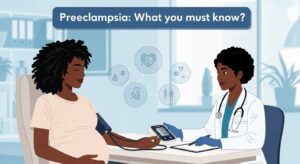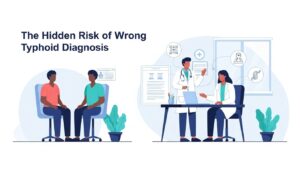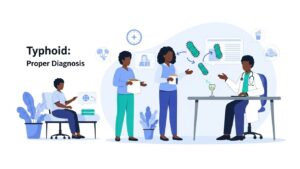Introduction
Breast cancer is now the most frequently diagnosed cancer among women worldwide. In 2022, the World Health Organization reported approximately 2.3 million new cases and over 600,000 deaths globally. These numbers are a stark reminder that while breast cancer is common, many lives can be saved through early detection and timely treatment. In Nigeria and similar low-resource settings, late presentation remains a major challenge. Breast cancer screening in Nigeria is essential because breast cancer in Nigeria often goes undetected until advanced stages. Our experts at Well-Life Hospital believe that education, access to screening, and prompt follow-up care are the three pillars that improve survival.
Why early detection matters
The stage at which breast cancer is diagnosed is the single most important predictor of outcome. Early, localized disease can often be treated successfully with surgery, radiation, and adjuvant therapies. Advanced cancers that have grown large or spread require more extensive treatment and are associated with lower survival rates. In regions where routine screening is available, cancers are commonly found at earlier stages, explaining lower mortality despite higher recorded incidence. Conversely, in settings where screening and diagnostics are limited, cancers are more often detected at a late and more dangerous stage.
Barriers to early detection in Nigeria
Several obstacles contribute to late presentation: limited availability of imaging (mammography and ultrasound), lack of awareness about screening schedules and signs, cost and travel barriers, and sometimes cultural or social stigma. Even when women notice changes, delays in seeking care or inadequate referral pathways can mean that diagnosis and treatment are postponed. Addressing these barriers requires action at the health-system level and continuous community education.
Screening and diagnostic options
There are several approaches to detecting breast cancer, each with strengths and limits:
-
Mammography: This is the most sensitive population screening tool for women aged 40 years and above. Mammograms can detect small cancers before they cause symptoms. Mammography programs are associated with reduced breast cancer mortality where they are properly implemented.
-
Clinical breast exam (CBE): A trained healthcare professional can detect palpable lumps and other changes during a CBE. While not a substitute for imaging, CBE plays a role where imaging is not immediately accessible.
Who should be screened and how often
Screening recommendations vary. A pragmatic approach for many settings is to prioritize mammography for women aged 40 and older and to use ultrasound and clinical assessment when appropriate for younger women or when access to mammography is limited. Women with a family history of breast or ovarian cancer or known genetic risk factors may need earlier and more intensive surveillance our experts can provide individualized guidance.
What to do if you notice changes
Any new lump, persistent breast pain, skin changes (dimpling or redness), nipple retraction or unexpected discharge should be evaluated promptly. If you discover a change during self-check or a routine activity, do not attempt to self-diagnose. Report it to a healthcare professional who can perform a clinical exam and order the right imaging or biopsy if needed.
How Well-Life Hospital supports patient
Well-Life Hospital our approach is patient-centered and practical. Our specialists provide compassionate clinical breast exams, coordinate imaging (mammography and ultrasound), and ensure prompt referral to surgical, medical oncology, or radiology services when needed. We also provide counselling to reduce anxiety and explain next steps clearly. For referrals, screening packages, or staff awareness sessions, our team can help design options appropriate for individuals and organizations.
Practical steps for communities and families
-
Increase public education about warning signs and screening age.
-
Encourage women to check monthly and report changes without delay.
-
Strengthen referral pathways so women get imaging quickly.
-
Offer community screening events where possible to reduce access gaps.
-
Promote health insurance or subsidized services to reduce financial barriers.






